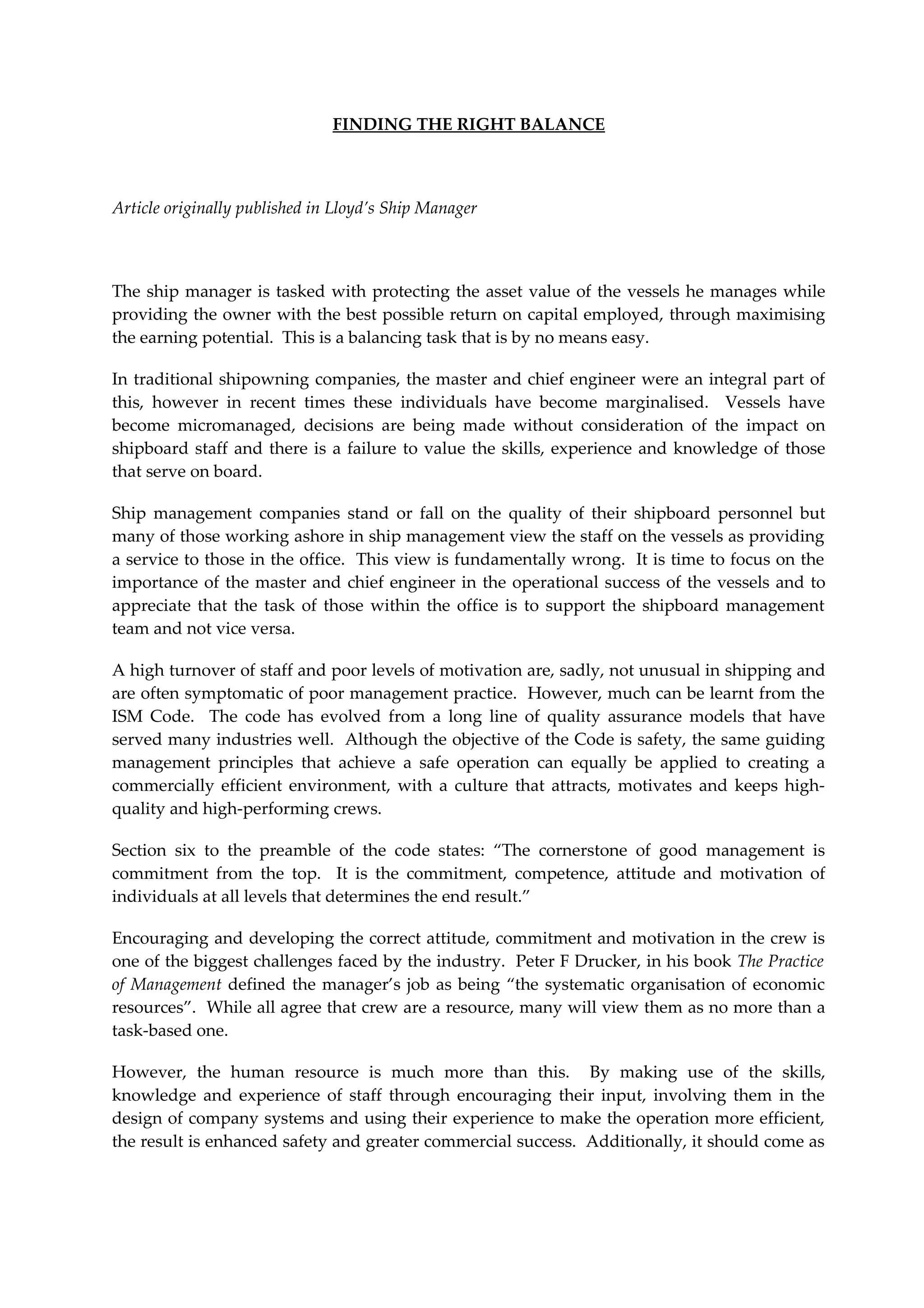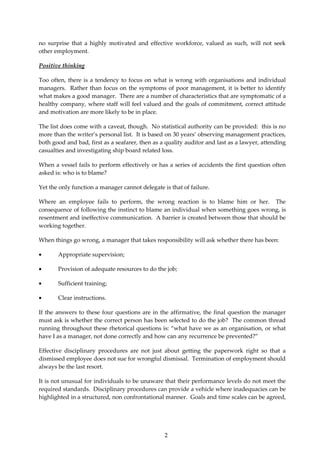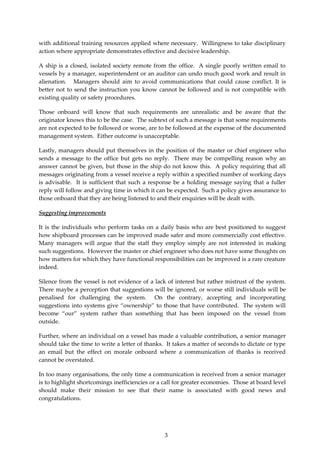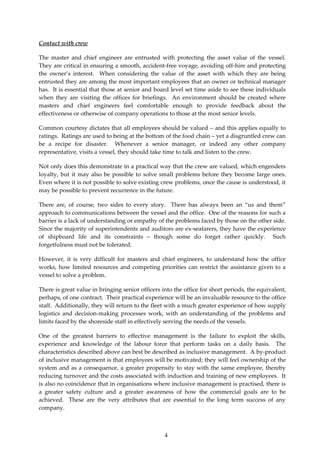The document discusses finding the right balance in ship management between protecting asset value and providing returns. It argues that ship managers have become too focused on micromanaging vessels without considering crew impacts. Good management requires valuing crew skills and experience, and supporting shipboard staff rather than viewing them as merely providing a service. The document advocates for inclusive management practices that encourage crew input and motivation in order to enhance safety and commercial success while reducing turnover costs.




